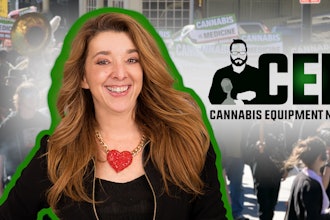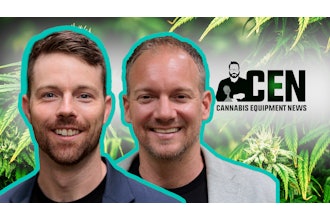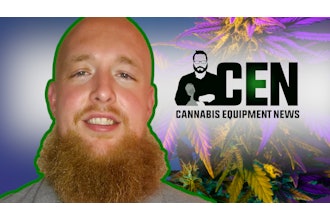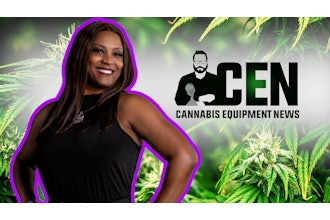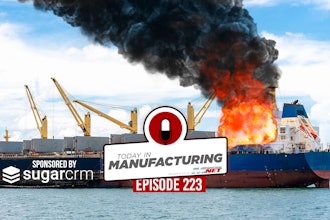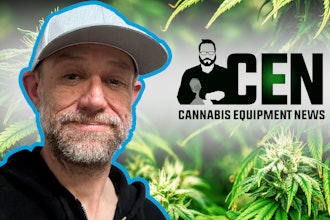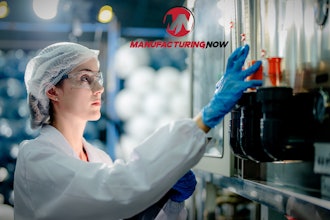Editor's Note: Download the audio version below and click here to subscribe to our newsletter.
Donald Naugler has been involved with the X-ray industry for nearly 30 years. He has helped use the technology for many applications in his career, from the obvious medical and security scenarios to industrial inspection. His experience brought him to a role as director of technology at VJ Scientific, a new cannabis division launched by VJ Group in October 2022. VJ Group has a long history of manufacturing machines that employ X-ray technology. The company was recently investigating a food application (sushi) when the team learned of a need in the cannabis industry.
According to Mark Clemons, general manager of VJ Scientific, cannabis remediation is a growth industry. X-ray has the unique ability to penetrate the entire bulk of cannabis. While the industry has several treatments to kill biological contaminants, like gases and UV light, X-ray can penetrate deep into the bud, whereas other solutions are surface treatments. The high energy interacts with all living organisms and "deactivates" them. The process isn't detrimental to the plant because, after harvest, cannabis is no longer alive.
Failed microbial testing can be costly for cannabis operators. According to Clemons, even with the price erosion the industry is experiencing, it doesn't take long before the costs of failed testing add up. Generally, he says operators have 15% to 20% of product that doesn't pass state regulation.
VJ Scientific's solution is the CX-1000, a machine designed specifically for cannabis remediation. The equipment is easy to use for any operator and requires very little training.
The CX-1000 irradiates cannabis thoroughly and uniformly with 99.9% effectiveness. The machine uses a dose sensor, an internal probe that works like an oven thermometer, to make sure the bioburden is remediated. It can process up to 25 pounds of cannabis in eight hours or less. Dose uniformity is crucial in cannabis because operators avoid the risk of "overcooking" some areas of the plant and "undercooking" others.
The ROI is relatively quick. For example, Clemons says a 30,000-square-foot grow site will achieve ROI in less than a year based on the 15% to 20% failed testing yield.
Some small growers have embraced the tech as well, and while they don't maintain the same yields as larger MSOs, they have created a new revenue stream called "tolling," in which they use their in-house CX-1000 to remediate competitors' products. VJ contemplated offering a service of its own but decided to leave it up to the growers and stick to the equipment side of the business.
The machine is safe for the operator and people working around it and includes features like double redundant interlocks to prevent accidents. While cannabis is unregulated at a federal level, X-ray tech has a long history of regulation, and the CX-1000 must comply with these standards.
Naugler and Clemons believe post-harvest remediation will be a major industry movement in 2023, and the consumer is forcing the change. Over time, consumers will demand more stringent limits on mold and bacteria. "You wouldn't tolerate [mold and bacteria] on your spinach; why would you tolerate it on your cannabis?" asks Clemons. In addition, Europe may soon require all cannabis to be decontaminated with X-ray.
Another unique feature of the CX-1000 is that it doesn't just work on post-harvest material. The machine can also be used after product is packaged -- no need for rework removing product from packaging for remediation.
Overall, Clemons has been encouraged by VJ's introduction to the cannabis industry. He says cannabis operators are more open to new ideas and have a willingness to learn, whereas professionals in other sectors are somewhat set in their ways.
In this episode of the Cannabis Equipment News podcast, Naugler and Clemons also discuss how federal regulations will likely embrace X-ray remediation, plans to automate the CX-1000 and why they made the operator interface so simple to use.
Please make sure to like, subscribe and share the podcast. You could also help us out by giving the podcast a positive review. Finally, to email the podcast or suggest a potential guest, you can reach David Mantey at David @cannabisequipmentnews.com










